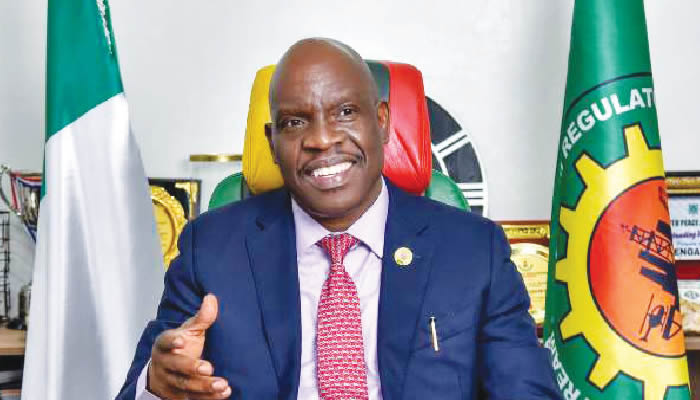“NUPRC Is Winning the War on Oil Theft” – CEGA Applauds New Crude Oil Routes

In an effort to reduce oil theft, increase transparency, and boost Nigeria’s oil output, the Nigerian Upstream Petroleum Regulatory Commission (NUPRC) has received praise from the Centre for Energy Governance and Accountability (CEGA) for obtaining federal government approval of 37 new crude oil evacuation routes.
NUPRC CEO Gbenga Komolafe revealed the new routes and gave updates on sector-wide changes aimed at repositioning Nigeria’s upstream industry for resilience and global competitiveness on Tuesday during the 2025 Nigeria Oil and Gas (NOG) Energy Week in Abuja.
Critical oil infrastructure has also been protected, he said, thanks to the commission’s cooperation with the military and security services.
The move marks “a major milestone” in Nigeria’s decades-long battle with oil theft and revenue losses, according to a statement released by CEGA on Sunday. Komolafe was commended for “translating policy into measurable results.”
“The sanctioning of 37 new evacuation routes is a deliberate intervention in an industry that loses billions of dollars every year, not just a bureaucratic correction. Dr. Kelvin Sotonye Williams, executive director of CEGA, stated, “This action shows seriousness in addressing leaks and regaining investor confidence.”
“Komolafe’s leadership at NUPRC has helped stabilize a regulatory environment that had been plagued by uncertainty and opacity until the Petroleum Industry Act (PIA) was passed in 2021,” Dr. Williams added.
With the $16 billion in investment promises obtained during the Tinubu administration in just two years, he claimed the results are already showing.
These assurances on paper don’t exist. These are genuine inflows propelled by aggressive digitization, regulatory uniformity, and clarity of vision, Williams stated.
Additionally, he commended the commission’s One Million Barrels Initiative, which proposes to increase daily production from the current 1.7 million barrels per day (bpd) to 2.5 million bpd by 2026. According to Komolafe, the plan was introduced in 2024 and is producing outcomes by bringing inactive fields back to life, expediting project approvals, and removing obstacles in the upstream licensing system.
CEGA says that increasing production is the most obvious path to energy security and financial independence, particularly at a time when global upstream investment must reach $640 billion a year to meet demand projections in 2030.
The stability of the world and the area will be threatened if supply is not invested in, as Komolafe correctly warns. The executive director of CEGA stated that Nigeria’s oil reserves are a strategic asset that should be handled to their full potential rather than being underutilized.
Read Also: “Nigeria Is Back on the Global Stage” – Olawepo-Hashim Hails Super Falcons’ Win
He added that obtaining the social license to operate in volatile oil-producing areas is largely dependent on the commission’s HostComply program, which guarantees real-time adherence to host community duties under the PIA.
“Rhetorical arguments cannot maintain peace. “Building trust in the Niger Delta requires social obligations to be traceable and measurable, which is made possible by the HostComply platform,” Dr. Williams stated.
NUPRC’s incorporation of environmental accountability into its upstream policy, such as its support for Nigeria’s 2060 net-zero aim, was especially encouraging to CEGA, he continued.
“Gas and oil are not going to be abandoned in the shift to renewable energy. It entails reinvesting in long-term energy security and producing more responsibly and cleanly. According to him, this balance is reflected in the commission’s changes.
All parties involved were urged by CEGA to support the commission’s goals and pledge to conduct business in an ethical and climate-conscious manner, including state-owned and private operators.
With Komolafe leading the charge, it is obvious that the NUPRC is unhappy with the way things are going. Williams stated, “They are striving for transformation; they are thinking beyond survival.”
The association asked the federal government to keep supporting the reforms by ensuring that presidential orders, like those on cost-efficiency and local content, are consistently enforced and shielding the regulatory environment from political meddling.
The Nigerian upstream sector will not only recover, but it will also spearhead Africa’s next wave of responsible fossil fuel development, according to CEGA, as long as this reform momentum is maintained.





